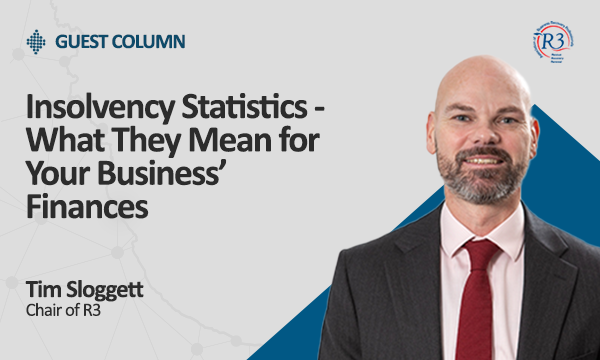Unknown Facts About Insolvency Practitioner
Unknown Facts About Insolvency Practitioner
Blog Article
The Insolvency Practitioner Diaries
Table of ContentsInsolvency Practitioner for BeginnersThe 9-Second Trick For Insolvency Practitioner4 Simple Techniques For Insolvency PractitionerRumored Buzz on Insolvency PractitionerRumored Buzz on Insolvency PractitionerSome Known Facts About Insolvency Practitioner.Insolvency Practitioner Things To Know Before You Buy
Insolvency is when responsibilities are higher than the worth of the company, or when a borrower can not pay the financial obligations they owe. A company can come to be bankrupt as a result of a variety of situations that bring about bad capital. When faced with insolvency, an organization or individual can call creditors straight and restructure financial obligations to pay them off.Organization proprietors may call financial institutions straight and restructure debts into more manageable installments. Creditors are normally open to this method since they want to be paid back and prevent losses, even if the repayment is on a delayed timetable.
Examine This Report on Insolvency Practitioner
The owner creates a proposition outlining just how the debt might be restructured making use of cost decreases or various other strategies for assistance. The proposal reveals lenders just how business might create adequate capital for successful operations while paying its financial obligations. Usually, a forgiven debt might be thought about revenue by the Irs (INTERNAL REVENUE SERVICE).

How Insolvency Practitioner can Save You Time, Stress, and Money.
Business may wind up paying huge amounts of cash in damages and be incapable to continue procedures. When procedures discontinue, so does the firm's revenue. Lack of earnings leads to overdue bills and lenders asking for money owed to them. Some companies end up being insolvent since their goods or solutions don't evolve to fit consumers' altering demands.
Expenses surpass earnings and costs remain overdue. Kinds of insolvency include cash-flow bankruptcy and balance-sheet bankruptcy. Cash-flow bankruptcy occurs when a firm has the possessions to cover their financial obligations but they remain in the wrong form, such as realty rather than liquid funds. Balance-sheet bankruptcy, on the various other hand, suggests an absence of properties in any kind of kind to cover debts.
The IRS states that a person is bankrupt when the total responsibilities go beyond overall properties. A personal bankruptcy, on the various other hand, is a real court order that depicts how a financially troubled individual or find this service will certainly settle their creditors, or just how they will certainly sell their possessions in order to make the settlements.
Unknown Facts About Insolvency Practitioner

Understanding the aspects that can result in bankruptcy, such as overspending, can assist you protect against bankruptcy and its repercussions.
9 Simple Techniques For Insolvency Practitioner
It is popular that directors and officers of firms (and managers of minimal obligation companies) owe fiduciary obligations to their companies and their shareholders (or members). These fiduciary commitments are specified by state statutes and, though there are variants from one state to another, they commonly include an obligation of loyalty and a responsibility of treatment.
The duty of care needs supervisors and officers to exercise diligence, to make informed decisions, and to act in great confidence so that their actions are in the very best interest of the business. Past the extent of this conversation, some states permit these responsibilities to be limited either by so noting in the organizational files or complying with other requirements.
The Only Guide for Insolvency Practitioner
The majority of states specify bankruptcy in 2 methods( 1) when a company's liabilities come to be above the sum of its properties or (2) when the business becomes unable to pay its debts as Recommended Reading they come to be dueand welcome both interpretations (Insolvency Practitioner). The change in obligations occurs because when a business is bankrupt, there is no value in the firm beyond that owed to the firm's lenders so that the equity holders no more have an economic risk in the company
Be careful about giving shareholders advantageous treatment at the expenditure of financial institutions (e.g., accrediting and moneying a reward or a stock additional info redemption). Beware regarding favoritism between classes of investors. Clear up efforts to learn all the facts prior to taking a details course of activity; supervisors must really believe that any decisions made remain in the best rate of interests of the company in its whole (i.e., decisions will certainly be assessed in hindsight due to the impact of such activities on the company).
In any bankruptcy or bankruptcy proceeding, settlements made to specific creditors at the expenditure of other financial institutions can be clawed back, specifically if there is some link between the business and the creditor. Take into consideration recommending at an annual investor meeting (or any kind of other conference of stockholders) a resolution attesting that all previous business choices and actions taken by the supervisors and policemans of the firm were taken in excellent faith after a workout of reasonable treatment.
The Best Guide To Insolvency Practitioner
Totally divulge any individual or company connections with events beyond of transactions involving the company to prevent the appearance of a problem of interest. In assessing possible fund increasing purchases or a sale of assets of the struggling corporation, understand that these transactions might be scrutinized later in light of any type of succeeding development of supervisors' fiduciary responsibilities to include lenders.
Report this page